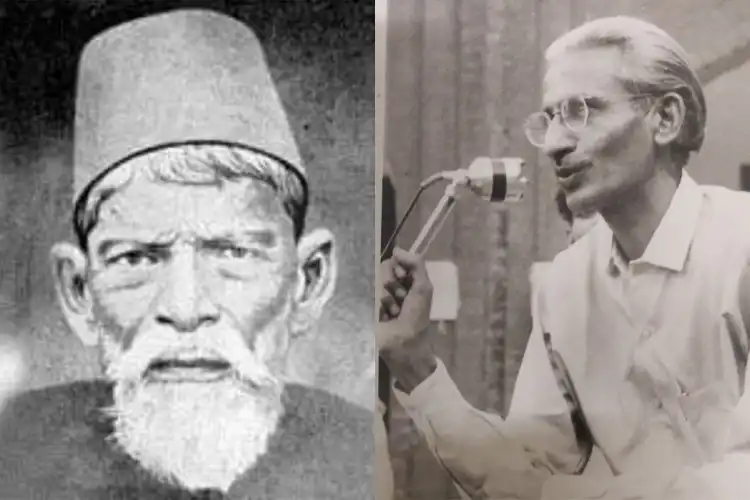
Saquib Salim
On Tuesday, someone on social media pointed out that the Uttar Pradesh Higher Education Department has updated the name of the famous Urdu poet Akbar Allahabadi to Akbar Prayagraj in an attempt to ‘Indianize’ the legacy of this country. Around six decades ago, when a popular satirist of Urdu language, Kanhaiya Lal Kapoor, wrote Humne Apna Bhartiya-Karan Karaya (We Indianized ourselves), he would not have, in his wildest dream, thought that one day the satire would take shape of state policy.
In this satire, Kapoor points out that after the partition of India attempts to erase syncretic culture and transform India into a monolithic society are bound to fail. Over the centuries, cultures have interacted and assimilated with each other and evolved into present-day society. A quest of establishing ‘pure’ culture is nothing but idiotic.
The narrator of the satire tells at the outset that he decided to Indianize himself before others could try to do it to him. A few people, he tells, know that his name was Iqbal Chand that he has changed to Kangal Chand since Iqbal is an Arabic word. He writes, “what kind of patriotism is it to name give yourself an Arabic name while living in India? I named myself Kangal (poor) Chand, which represents my, and also the country’s, economic conditions.”
.jpg)
The Website of UP Education Department
After changing his name he stopped wearing pants, coat, and necktie. Initially, Kangal wanted to wear payjama but then someone pointed out that payjama is also a Persian word. So, he started wearing a dhoti with a kurta. After this he went to a barber and shaved his head leaving only a choti over his head; also grew a big mustache. He adds that he looked like a ‘cartoon’ after this makeover. He also stopped wearing eyeglasses arguing that people in the times of Mahabharata and Ramayana did not wear these. As a result, his eyesight grew weaker and the doctor warned him in case he didn’t wear glasses, he might turn blind. Similarly, he gave up smoking cigarettes and wearing a wristwatch, since both have western origins.
After doing all this, Kangal was convinced that he has been sufficient ‘Indianized’ that nobody will accuse him of being anti-Indian or anti-national. However, this was not to be. One day while watching television, a friend accused him of using a western invention for entertainment. In a typical fashion of ‘guardians of culture’, where they try to legitimize their own usage of cross-cultural objects through co-opting mythology, Kangal argues back that if not for television how Sanjay narrated Mahabharata to Dhritrashtra. The friend further asked if Sanjay used a television, where did it go? A frustrated narrator dismisses him saying, “it was destroyed during the war of Mahabharata”.
If it was not enough people started asking him why his wife still uses lipstick and powder. Moreover, why does Kangal use motorized vehicles to go to the office instead of a Palki or horse chariots? People started pressuring him to walk to the office and stop wearing western shoes. Kangal says, “I thought that after all this no critic will say that I am not a hundred percent Indian, but I was wrong”. Critics started asking him to stop using the telephone and electricity. They wanted him to use lamps as electricity was invented by western scientists. Other friends asked him to stop sitting on chairs, drinking tea, and send his children to Ayurveda College instead of Medical College.
Kangal started thinking, is it important to send children to Gurukul, stop reading English newspapers and stop getting vaccinated to become a ‘true Indian’? After mulling over the matter, he decides to advertise in a newspaper that it is now out of his capacity to become more Indian and he has already done his best.
This piece by Kapoor is an important reminder for those who want to create a ‘true’ ‘indigenous’ society based on ‘ancient’ traditions. Constant interactions among different civilizations, cultures, and societies have resulted in the world we are living in and to call these interactions corruption shows a lack of sociological understanding. Erasure of history would not make us a strong nation and a great society but accepting history with its flaws, learning from them, and not repeating the mistakes will pave the way for a great India of future.
